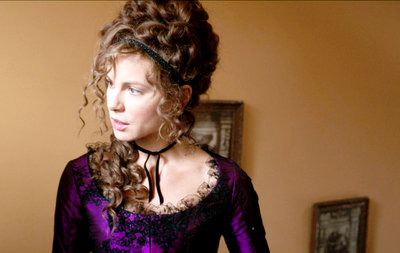
It’s always wonderful to be reminded that Kate Beckinsale is an excellent actress.
In 2003, Beckinsale became the face of the Underworld franchise, and people seemed to stop taking her the least bit seriously. She’s too often cast in dopey rom-coms (Serendipity) or knock-off action flicks (Van Helsing), and so we forget that she was great as Hero in Branagh’s Much Ado About Nothing and as Charlotte in Whit Stillman’s The Last Days of Disco.
Maybe we can’t blame Underworld for trapping her in a small cinematic box, but regardless, bless Stillman for once again letting her out of it. Our great purveyor of talky films about wonderfully flawed people, Stillman has in some ways changed very little since 1990’s Metropolitan. He’s only made five features, and took more than a decade between Disco and Damsels in Distress.
If Stillman has eluded your notice until now, that’s understandable. But Love & Friendship, his latest, should be his calling card for a new level of renown.
Love & Friendship is based on Jane Austen’s Lady Susan. In Stillman’s hands, the novella becomes a precise little petit four of a film with surprising bite. Beckinsale soars through it all as Lady Susan Vernon, a widow with no fixed address and a daughter she needs to provide for. She also, naturally, needs to provide for herself, but her reputation as a terrible flirt and manipulator precedes her.
Lady Susan certainly is those things, and that’s the fun of it. Watching Beckinsale deftly maneuver people into position, working sometimes through her good friend Alicia (Chloë Sevigny) and sometimes through unsuspecting new acquaintances, is like watching the political machinations on Game of Thrones, just on a much smaller scale (with no bloodshed). She and Sevigny co-starred in Last Days of Disco and their level of comfort on screen is apparent; Sevigny is so mild, so natural, that she makes more space for Beckinsale’s precisely tempered Susan.
Other highlights of the cast include Stephen Fry as Alicia’s older husband; Jenn Murray, having a hell of a time as the perpetually overwrought Lady Manwaring; and Xavier Samuel as a perfectly noble, perfectly kind target for Susan’s affections, such as they are.
The great joke of Love & Friendship — and it is quite funny, in that wry, British way — is that very little of either is present on screen. Under all the wordplay and posturing and plotting is a simple fact: Susan doesn’t have any other options but to finagle herself a new husband. It’s her only means of security. You can hate her, but what else is she supposed to do?
Stillman tucks this ugly fact into the corners of Susan’s bright smile; it’s hidden in the folds of beautiful dresses, underfoot in the endlessly sunny scenes. You don’t even have to look at it, if you don’t want to. But it’s there, like the tensions that run under the conversations in all Stillman’s films, the uncomfortable awareness that more is on the table than initially appears. He’s perfectly suited to Austen — in fact, he’s perfectly suited to witty, sly period pieces, full stop.
Let’s hope it’s not a decade until he makes another. (Bijou Art Cinemas)